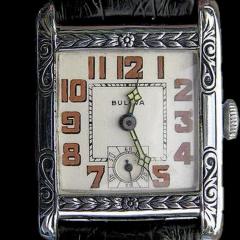-
Recently Browsing
- No registered users viewing this page.
-
Topics
-
Posts
-
Did you take the friction pinion off the large driving wheel and grease it? Although, now that I think about it, that shouldn't have any effect on the free running of the train if the friction pinion isn't interacting withe minute wheel/setting wheel...
-
I did in fact use Rodico to get the spring into general position and "hold" it there while I used a fine oiler to make subtle positional adjustments.
-
By Neverenoughwatches · Posted
The two measurements of particular importance wound be the height and the strength, the length would obviously correspond with the increase/reduction of half mm of barrel diameter. There is a big difference in price considering that the more expensive one is the shortest. The longer one might be ok ? But then it is taking up more room in the barrel, might it effect the unwinding ? I wouldn't have thought so for just that small amount. Ideally a pro might reduce the longer one to suit. But there is some information that might help, do you have the one that was fitted to measure up, though not necessarily the right one. -
Hi, I need to order a new main spring. According to Cousins website the correct spring is 1.60 x .10 x 300 x 9 non-auto but it is not available. The two closest are 1.60 x .10 x 280 x 8.5 @ £17.50 and 1.60 x .10 x 340 x 9.5 @ £7.50. I’m tempted to go for the 9.5 for a couple of reasons. Any reason that’s likely to be a bad decision? Thanks.
-







Recommended Posts
Join the conversation
You can post now and register later. If you have an account, sign in now to post with your account.
Note: Your post will require moderator approval before it will be visible.